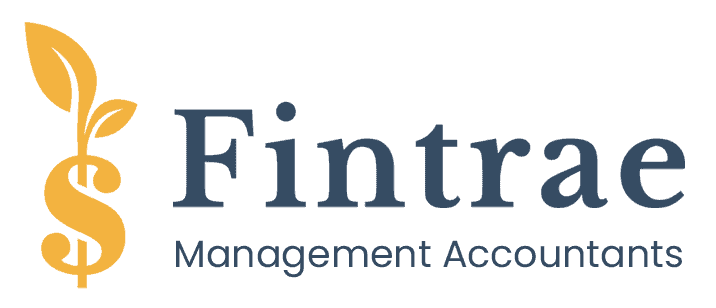Many small business owners overlook essential tax deductible expenses due to a lack of organization or knowledge. Understanding which expenses are deductible is vital for maximizing profits and relieving stress during tax season. For instance, home office expenses, business supplies, and software subscriptions can all be claimed.
Marketing costs and professional services, like hiring accountants or bookkeepers, are also deductible. Don’t forget travel-related costs as well as vehicle expenses, both can offer substantial savings. Keeping detailed records of meals, insurance premiums, and employee wages ensures you make the most of available deductions while staying IRS-compliant. Get organized to take control of your finances!
1. Home Office Expenses

Home office expenses can offer meaningful tax relief for small business owners who work from home. To qualify, a portion of your home must be used exclusively and regularly for business. For example, if you use a room solely as an office and not for personal activities, you may be eligible.
There are two ways to calculate your deduction. The simplified method allows a flat deduction of $5 per square foot, up to 300 square feet. The actual expense method lets you deduct a portion of your rent or mortgage interest, utilities, internet, and other costs based on the percentage of your home used for business.
Measure your home office and compare it to your total home size to calculate this percentage. Keep detailed records of all related expenses, including office supplies and utility bills. A dedicated room makes it easier to claim the deduction than a shared space, which may be subject to more IRS scrutiny.
If you choose the actual expense method, you may also need to account for depreciation, which can affect your tax return. Regardless of the method, maintaining accurate documentation throughout the year is essential.
Home office deductions can significantly reduce your taxable income. If you’re self-employed or run a business from home, take the time to understand the IRS rules and explore how this deduction could benefit you.
2. Business Supplies and Equipment
Business supplies and equipment are essential tax deductions that can reduce your overall liability. Everyday items like paper, pens, and ink are fully deductible in the year they’re purchased. For larger purchases such as computers, printers, or other office tech, it’s important to document costs carefully and understand how they’re categorized. Supplies are typically deducted immediately, while equipment and other capital expenses may need to be depreciated over time.
Using a dedicated business account makes it easier to track these expenses and avoid mixing personal and business purchases. Office furniture and fixtures are also deductible, so keep detailed records of any replacements or upgrades.
Inventory management software can streamline this process and help you stay organized. Regardless of the system you use, save all receipts and maintain clear documentation, as the IRS requires proof to support any claims.
To maximize deductions, plan ahead. Stock up on frequently used items before year-end or take advantage of bulk pricing when it makes sense for your business. Strategic purchasing, combined with accurate recordkeeping, ensures you get the full benefit of every eligible deduction.
3. Software and Subscriptions
Software and subscriptions can be essential tax deductible expenses for small business owners. Identifying which software expenses are eligible for deductions is essential. Many entrepreneurs use cloud-based solutions like QuickBooks for accounting, or project management tools like Asana, which typically come with monthly or annual subscription fees. It’s important to document these ongoing costs, as they are fully deductible.
When considering software purchases, keep in mind the difference between one-time purchases and annual subscriptions. One-time purchases may be depreciated over time, while subscription services can often be deducted in full in the year they are paid. Additionally, if you pay for updates or additional features, such expenses may also be deductible, as long as the software is primarily used for business purposes.
Reviewing subscription agreements is vital to ensure that all aspects of the service are tax deductible. Many small businesses rely on software for project management and team collaboration, which can boost productivity and efficiency. Keeping records of any software trials or refunds received is also important, as these can affect your overall deductions. Finally, planning for future software needs can help you anticipate potential tax implications, ensuring you maximize your deductions.
4. Marketing and Advertising Costs
Marketing and advertising expenses are fully deductible and essential for growing your business. Qualifying costs include social media ads, website development, print materials, and branding assets like logos and brochures. These costs can add up, so it’s important to keep all receipts and records.
When developing a website, include design, updates, and maintenance costs. Promotional items and business cards also count toward your deductions. Use marketing tools with analytics to track the performance of your campaigns, which can help with future budgeting and proof of business purpose.
Keep advertising expenses separate by using a dedicated business account, and document in-house marketing efforts as well. Review contracts for external marketing services to clarify which costs are deductible. Staying organized ensures you maximize every eligible deduction.
5. Professional Services
Professional service fees are another important category of deductible business expenses. This includes payments to accountants, consultants, legal advisors, and tax preparers. Keep detailed records of all fees, including invoices and contracts, especially in case of an audit.
Virtual service providers are often a cost-effective option and are also fully deductible. Be sure to document any legal fees, as these can become significant over time.
These services often provide more than compliance, they can help guide strategic decisions and improve financial planning. Keep a log of ongoing professional relationships and factor them into your annual budget to stay ahead of both costs and opportunities.

6. Travel Expenses
Business-related travel can be deducted if it is ordinary and necessary. Eligible expenses include airfare, car rentals, lodging, and transportation during the trip. Meals are deductible at 50% when traveling for work, so it’s important to keep receipts and note the business purpose of each meal.
Ensure your trip meets IRS requirements by clearly documenting the business intent and duration. Domestic and international travel may be treated differently, so review the relevant rules before filing.
Use travel expense tracking tools to stay organized, and plan travel budgets ahead of time to control spending while maximizing deductions.
7. Business Meals and Entertainment
When it comes to business meals and entertainment, understanding the current IRS rules is essential. Generally, you can deduct 50% of meal costs related to business, but if the meals are provided to employees during office events, you can deduct 100%. It’s important to document the business purpose for every meal expense, which means noting down why the meal was necessary for your business activities.
Keeping detailed records is crucial. Make sure to save all receipts and document the attendees for every meal. This can help you provide necessary evidence in case of an audit. Additionally, when it comes to client meals, ensure that you clearly state the business purpose, whether you’re discussing projects or networking.
You might also want to plan meals in advance to maximize deductions throughout the year. This could include using meal delivery services for business meetings, which can be both convenient and deductible. As you review your overall tax return, consider how meal expenses impact your bottom line, and think ahead about future networking events and meals with clients. Staying organized with these expenses can lead to significant savings.
8. Vehicle Expenses
If you use a vehicle for business, you can deduct related costs using either the actual expense method or the standard mileage rate. The 2025 standard rate is 70 cents per mile. With the mileage method, you’ll need a detailed log of each trip, including the date, destination, and business purpose.
If you choose the actual expense method, you can deduct fuel, maintenance, insurance, and depreciation, but only for the portion of vehicle use that is business-related. For example, if your car is used 60% for business, you can deduct 60% of the expenses.
Use apps to track mileage and expenses automatically. Consider whether leasing or buying a vehicle is more advantageous for your business, as each has different tax implications.
9. Insurance Premiums
Insurance premiums can offer significant tax deductions for small business owners. Various types of insurance are deductible, including general liability, property insurance, and workers’ compensation. If you are self-employed, the premiums you pay for health insurance can also be deducted, which can lead to substantial savings.
It’s important to document all costs associated with these insurance policies, as they can add up quickly. Additionally, consider bundling your insurance policies, which may lead to lower overall premiums. Keeping detailed records of all insurance payments and renewals is important, as the IRS may require proof of these expenses.
Always review your policy terms to confirm that the premiums are deductible and assess your coverage needs through periodic insurance reviews. This way, you can plan for future insurance needs and budget accordingly. Lastly, if you file any insurance claims, be aware of how they may impact your tax returns.
10. Employee Wages and Contractor Payments
Wages, salaries, bonuses, and payments to independent contractors are fully deductible business expenses. To claim these deductions, keep accurate payroll records, contracts, and tax forms.
Make sure workers are classified correctly. Misclassifying employees as contractors can lead to penalties. Using accounting software or payroll services can help you manage and document payments accurately.
Review employment agreements and factor future hiring into your tax planning. Adding staff increases deductible expenses, but it also affects your cash flow, so plan carefully. Staying compliant with IRS regulations helps you avoid issues and ensures you take full advantage of this important deduction.
Bonus Tip: Keep Detailed Records
Keeping detailed records is essential for small business owners. Use a dedicated folder or a digital tool to organize your receipts and invoices, making it easier to find them when needed. Aim to update your records regularly, ideally on a weekly basis, to prevent the last-minute rush during tax season. Categorizing your expenses by type, such as travel, supplies, or meals, will help you retrieve and report them more efficiently.
It’s wise to keep digital copies of your receipts to protect against loss or damage. Whenever you make a purchase, note the business purpose on the receipt immediately. This practice will save you time and confusion later. Consider using bookkeeping software to automate some recordkeeping tasks, which can streamline your process.
Make it a habit to review your records monthly to ensure everything is accurate and complete. If you have employees, training them on proper record maintenance can further enhance your organization. Creating a checklist of documents you need for tax season can simplify your preparation, and setting reminders for important tax deadlines helps you stay ahead of your obligations.
Maximize Deductions and Take Control of Your Finances

Many small business owners overlook essential tax deductions due to a lack of organization or knowledge, ultimately leaving money on the table. Understanding which expenses are deductible, from home office costs and software subscriptions to travel, meals, insurance premiums, and employee wages, is vital for maximizing profits and reducing stress during tax season.
Staying on top of recordkeeping and seeking professional guidance can make all the difference. This is where Fintrae International can help. We specialize in financial management and tax solutions for small businesses, ensuring you don’t miss out on valuable deductions while staying IRS-compliant. Our expert team can help you organize your expenses, optimize your tax strategy, and free up your time to focus on growing your business. Contact Fintrae today to schedule a consultation and discover how we can help you save more, stress less, and stay financially confident year-round.
Frequently Asked Questions
What are tax deductible expenses for small businesses?
Tax deductible expenses are costs that small business owners can subtract from their total income, which lowers the amount of income that is taxed.
Can I deduct home office expenses?
Yes, if you use a part of your home exclusively for business, you can deduct related expenses, like a portion of your rent, utilities, and internet.
Are vehicle expenses deductible if I use my car for business?
Yes, if you use your vehicle for business purposes, you can deduct expenses like fuel, maintenance, and insurance, or you can use the standard mileage rate.
Is it possible to deduct business meals?
Yes, you can deduct meals with clients or for business meetings, as long as they are not lavish and you keep proper documentation.
What other expenses can I write off as a small business owner?
Other deductible expenses can include advertising costs, professional fees, office supplies, and employee wages, among others.




